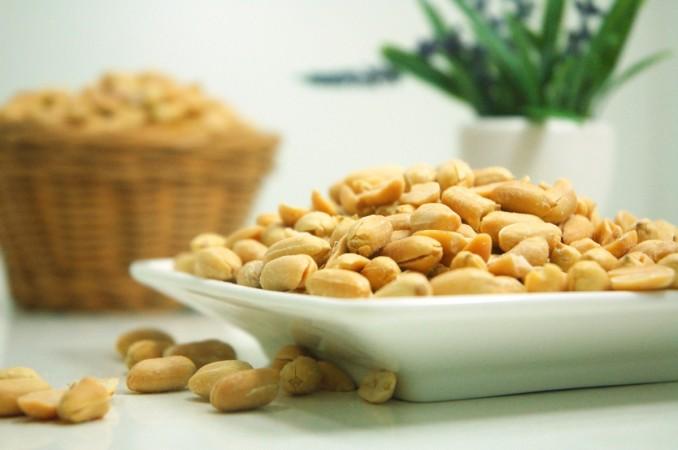![Regular intake of nuts can lower the risk of heart rhythm irregularity. [Representational image] nuts](https://data1.ibtimes.co.in/en/full/686153/nuts.jpg?h=450&l=50&t=40)
Nuts are definitely one of the healthiest snacks, but turns out, other than their ability to aid a weight loss diet, they can also benefit the heart. A recent study has been able to establish that regular intake of nuts can lower the risk of heart rhythm irregularity.
The research conducted by BMJ found that eating several servings of nut all through the week can even lower the risk of atrial fibrillation, also known as heart flutter. It can also lessen risks of heart failure, even though the findings for that are not all that consisted, as suggested by the study.
But, tallying the results with known risks factors that are potentially influential, such as lifestyle, general diet, diabetes, and family history, nut consumption's association with atrial fibrillation was consistent.
The study showed that eating a serving of nuts one to three times a month could lower those risks of heart troubles by three percent. But eating them once or twice a week showed a 12 percent reduced risk while eating them thrice or more on a weekly basis, reduced it by 18 percent.
![Nuts are loaded with healthy fats, minerals, and antioxidants – all of which are linked to better cardiovascular health. [Representational image] nuts](https://data1.ibtimes.co.in/en/full/686155/nuts.jpg?h=450&l=50&t=40)
This can be explained by all the nutrients that nuts are loaded with – such as healthy fats, minerals, and antioxidants – all of which are linked to better cardiovascular health, as the researchers explained.
"Nut consumption or factors associated with this nutritional behavior may play a role in reducing the risk of atrial fibrillation and possibly heart failure," they wrote in the study that is now published in the online journal, Heart.
The researchers also added: "Since only a small proportion of this population had moderate (about 5 percent) or high (less than 2 percent) nut consumption, even a small increase in nut consumption may have large potential to lead to a reduction in the incidence of atrial fibrillation and heart failure in this population."
Try these 4 nuts to ensure your heart stays in perfect health.
1. Almonds
![Almonds are healthy snacks. [Representational image.] almonds](https://data1.ibtimes.co.in/en/full/685437/almonds.jpg?h=450&l=50&t=40)
Almonds help lower the LDL cholesterol in our body. LDL is the bad cholesterol that can create plaques in the coronary arteries, which in turn causes heart attacks. Clinical studies have also shown that eating almonds regularly can reduce risks of insulin resistance and diabetes.
2. Pistachios
![Pistachios control blood pressure under stress. [Representational image] pistachios, diet, health,](https://data1.ibtimes.co.in/en/full/679819/pistachios-diet-health.jpg?h=450&l=50&t=40)
The body and heart respond adversely to stress and this is where pistachios jump in. Stress induces increased blood pressure while eating pistachios regularly can keep it all toned down. Plus it also lowers LDL cholesterol and risks of diabetes.
3. Walnuts
![Walnuts are one of the only nuts that contain alpha-linoleic acid – an anti-inflammatory agent that can reduce plaque build-ups the coronary arteries. [Representational image] walnuts](https://data1.ibtimes.co.in/en/full/686172/walnuts.jpg?h=450&l=50&t=40)
Composed of 47 percent polyunsaturated fatty acids, or the good fats, walnuts are the only nuts that contain alpha-linoleic acid – an anti-inflammatory agent that can reduce plaque build-ups the coronary arteries. Regularly eating them can also reduce the level of apolipoprotein B, which is a genetic risk factor for coronary artery disease.
4. Peanuts

Peanuts are an excellent alternative source of protein and can also reduce cholesterol in the system. Even it's the yummiest derivative – peanut better – can reduce heart risks!
At the same time, too much of nuts is not a good thing either. Writing for EverydayHealth, T. Jared Bunch, MD, Utah, says that nuts are an excellent source of energy but overeating can cause weight gain and even disrupt heart health. "The best approach to eating nuts is moderation," he says.
Also, nut allergies should be taken into account too. "If you have a potential allergy or a family history of nut allergies, don't consider using nuts until you talk with your doctor," Bunch adds.

















